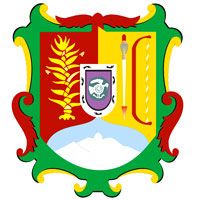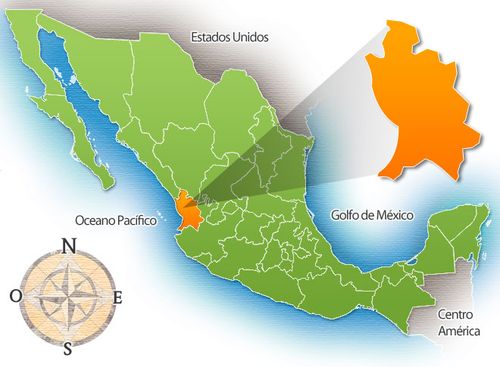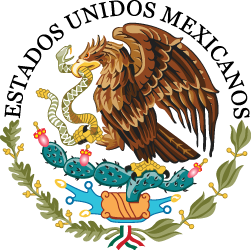Do Turkey Tail Mushrooms Work? | The CORRECT Way to Take Turkey Tail Mushroom
CCMray • June 28, 2024 • 0 views
Chapters
00:00 - Intro
0:47 - What is Turkey Tail Mushroom?
1:43 - PSK and Antitumor Effect
2:49 - Turkey Tail and the Gut
3:49 - Turkey Tail and Antioxidants
5:09 - How to Take Turkey Tail?
6:00 - Dosing and Side Effects
What is Turkey Tail Mushroom?
Turkey Tail Mushrooms, otherwise known as Trametes versicolor or Coriolus Versicolor, is just one out of the 100 species of mushrooms that have been researched for their medicinal properties.
Where Does Turkey Tail Mushrooms Grow?
Now, If you’ve taken a hike in the woods, you’ve probably seen plenty of turkey tail mushrooms because they grow on fallen trees. They have a long history of use in Chinese Traditional Medicine, dating back to the 15th century during the Ming dynasty in China, and the Japanese refer to it as kawaritake, or “cloud mushrooms”.
Does Turkey Tail Mushrooms Work?
What’s even more intriguing is the two polysachharides found within these swirls. Polysaccharide-K known as Krestin, or PSK, and polysaccharide peptides or PSP. PSK and PSP are immunomodulators that stimulate and balance the immune system.
Turkey Tail and Immunity
Now we just have to find out to what extent these polysaccharopeptides like PSK can be used to achieve the most clinically significant results. Which is not an overnight process.
Turkey Tail and Gut
You see, Our gut bugs interact with our immune cells and directly impact our immune responses. So by having a healthy balance of them, is just one way to have a stronger immune system when its time to fight off the bad guys coming in. And the way it achieves this is by acting as a prebiotic. Prebiotics are different than probiotics as they are non living, think of them as food for your probiotics. Some other examples of important prebiotics are wheat, artichokes, onions, leeks, jicama, and potatoes. These prebiotic foods contain starchy carbohydrates with large amounts of fiber. These fibers aren’t fully broken down right away. So when they finally reach the colon, they become fermented by the gut microbiome. And this is where the magic happens!
Turkey Tail Antioxidants. Are Turkey Tail Mushrooms Good?
Phenols and Flavonoids to be exact. Which is great since they reduce inflammation and stimulate the release of protective compounds. Free radicals take electrons which can radically alter your cells structure or function. But just heads up, using the term “antioxidant” to refer to substances is pretty misleading actually. A better way to look at it is that Its a chemical property, that acts as an electron donor. And Some substances that act as antioxidants in one situation may be pro-oxidants—electron grabbers—in a different situation. Another big misconception is that antioxidants are interchangeable. They aren’t. Each one has unique chemical behaviors.
In fact, Chaga Mushrooms, which ill have a video on soon, has the most antioxidant activity, followed by maitake, reishi, shiitake, lions mane, then turkey tail.
How to Take Turkey Tail Mushrooms?
he turkey tail mushroom is edible but its pretty chewy. This is why you find it a lot in tea or powder in capsule form. You can even find it combined with other mushrooms as a supplement. Speaking of a supplement, heres my criteria. The first, has to be organic because the soil matters. Secondly, made in the US, Thirdly, it should be third party tested for purity, and the presence of glucan and polysaccharides has to be there.
Turkey Tail Dosage? How Much Turkey Tail to Take?
And Since no safety studies have established a specific dosage for taking turkey tail as an herbal supplement, Its best to start by taking small doses to see how it works with your body. The most common dose you’ll see is about 2 grams a day .
Turkey Tail Side Effects
Most people who take turkey tail don’t experience any side effects, but some that have been reported were bloating, constipation, and lower blood pressure. If you experience any of these side effects, stop taking the supplement immediately and contact your healthcare provider.
DISCLAIMER:
This video is for information only and should not be used for the diagnosis or treatment of medical conditions. Dr. Arsalan Aspires has used all reasonable care in compiling the information but make no warranty as to its accuracy. Always consult a doctor or other healthcare professional for diagnosis and treatment of medical conditions.
00:00 - Intro
0:47 - What is Turkey Tail Mushroom?
1:43 - PSK and Antitumor Effect
2:49 - Turkey Tail and the Gut
3:49 - Turkey Tail and Antioxidants
5:09 - How to Take Turkey Tail?
6:00 - Dosing and Side Effects
What is Turkey Tail Mushroom?
Turkey Tail Mushrooms, otherwise known as Trametes versicolor or Coriolus Versicolor, is just one out of the 100 species of mushrooms that have been researched for their medicinal properties.
Where Does Turkey Tail Mushrooms Grow?
Now, If you’ve taken a hike in the woods, you’ve probably seen plenty of turkey tail mushrooms because they grow on fallen trees. They have a long history of use in Chinese Traditional Medicine, dating back to the 15th century during the Ming dynasty in China, and the Japanese refer to it as kawaritake, or “cloud mushrooms”.
Does Turkey Tail Mushrooms Work?
What’s even more intriguing is the two polysachharides found within these swirls. Polysaccharide-K known as Krestin, or PSK, and polysaccharide peptides or PSP. PSK and PSP are immunomodulators that stimulate and balance the immune system.
Turkey Tail and Immunity
Now we just have to find out to what extent these polysaccharopeptides like PSK can be used to achieve the most clinically significant results. Which is not an overnight process.
Turkey Tail and Gut
You see, Our gut bugs interact with our immune cells and directly impact our immune responses. So by having a healthy balance of them, is just one way to have a stronger immune system when its time to fight off the bad guys coming in. And the way it achieves this is by acting as a prebiotic. Prebiotics are different than probiotics as they are non living, think of them as food for your probiotics. Some other examples of important prebiotics are wheat, artichokes, onions, leeks, jicama, and potatoes. These prebiotic foods contain starchy carbohydrates with large amounts of fiber. These fibers aren’t fully broken down right away. So when they finally reach the colon, they become fermented by the gut microbiome. And this is where the magic happens!
Turkey Tail Antioxidants. Are Turkey Tail Mushrooms Good?
Phenols and Flavonoids to be exact. Which is great since they reduce inflammation and stimulate the release of protective compounds. Free radicals take electrons which can radically alter your cells structure or function. But just heads up, using the term “antioxidant” to refer to substances is pretty misleading actually. A better way to look at it is that Its a chemical property, that acts as an electron donor. And Some substances that act as antioxidants in one situation may be pro-oxidants—electron grabbers—in a different situation. Another big misconception is that antioxidants are interchangeable. They aren’t. Each one has unique chemical behaviors.
In fact, Chaga Mushrooms, which ill have a video on soon, has the most antioxidant activity, followed by maitake, reishi, shiitake, lions mane, then turkey tail.
How to Take Turkey Tail Mushrooms?
he turkey tail mushroom is edible but its pretty chewy. This is why you find it a lot in tea or powder in capsule form. You can even find it combined with other mushrooms as a supplement. Speaking of a supplement, heres my criteria. The first, has to be organic because the soil matters. Secondly, made in the US, Thirdly, it should be third party tested for purity, and the presence of glucan and polysaccharides has to be there.
Turkey Tail Dosage? How Much Turkey Tail to Take?
And Since no safety studies have established a specific dosage for taking turkey tail as an herbal supplement, Its best to start by taking small doses to see how it works with your body. The most common dose you’ll see is about 2 grams a day .
Turkey Tail Side Effects
Most people who take turkey tail don’t experience any side effects, but some that have been reported were bloating, constipation, and lower blood pressure. If you experience any of these side effects, stop taking the supplement immediately and contact your healthcare provider.
DISCLAIMER:
This video is for information only and should not be used for the diagnosis or treatment of medical conditions. Dr. Arsalan Aspires has used all reasonable care in compiling the information but make no warranty as to its accuracy. Always consult a doctor or other healthcare professional for diagnosis and treatment of medical conditions.

























